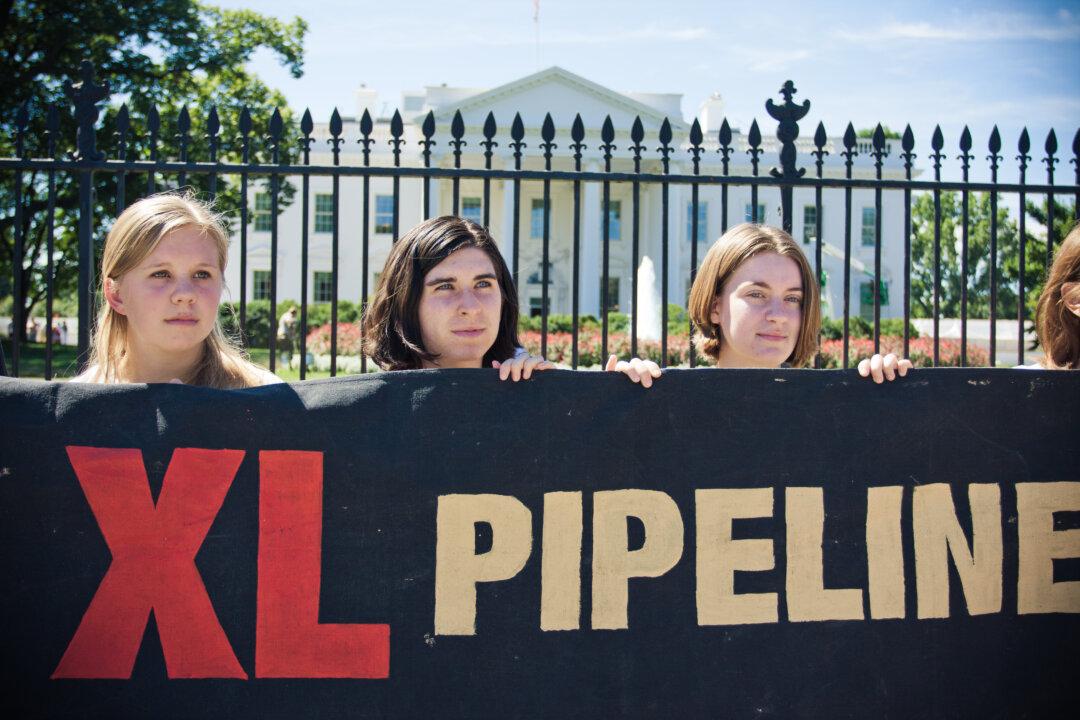New research suggests the U.S. State Department’s environmental assessment of Keystone XL was wrong when it found the pipeline is “unlikely to significantly impact the rate of extraction in the oil sands.”
The report from the Carbon Tracker Initiative studied the point at which transportation costs by rail make new oil sands projects cost prohibitive. It found the pipeline, which would carry bitumen from northern Alberta’s oil sands to refineries on the U.S. Gulf Coast, will likely enable additional greenhouse gas emissions of a whopping five gigatonnes by 2050. To put that in perspective, the report notes that’s equivalent to annual emissions by a billion cars or 1,400 new coal-fired power plants. Cumulative emissions attributable to Keystone XL would equal 14 to 15 per cent of total projected CO2 emissions from the oil sands until 2050.
How did researchers come to such a different conclusion? Well the apparent conflict of interest of the contractor who evaluated GHG emissions for the State Department may have had something to do with it (not that Carbon Tracker doesn’t have an agenda).
“We find that [the State Department’s] modeling does not fully explore how the lower transportation costs (relative to rail) enabled by KXL improve producer economics and hence affect future oil sands production,” reads the report. Analysts found rail costs become prohibitive somewhere between $48 and $53 per barrel of bitumen, while Keystone XL would enable projects to be profitable at $60 per barrel.
This increase would amount to production of an added 510,000 barrels per day of bitumen (actually 730,000 of diluted bitumen) or about 100 per cent of Keystone XL’s capacity. All of the oil flowing through Keystone XL would effectively be oil which could not be profitably moved by train.
“Our national interest will be served only if this project doesn’t significantly exacerbate the problem of carbon pollution. The net effects of the pipeline’s impact on our climate will be absolutely critical to determining whether this project can go forward,” said Barack Obama in a June 2013 speech at Georgetown University. Clearly the president intends to factor climate change into his decision on this project.
As the report notes, “significance ... is in the eye of the beholder.” Keystone XL would enable production of enough oil to make up 0.5 per cent of Earth’s total remaining carbon budget, all the carbon humanity can emit – ever – if we are to stick to a target limit of two degrees celsius. Emphasizing U.S. Secretary of State John Kerry’s words which put the severity of the threat of climate change at the level of terrorism, epidemics, poverty and the proliferation of nuclear weapons, the researchers conclude.
“From this perspective, decisions that aggravate the threat by even fractions of a percent can be too costly to bear.”
Logic follows that the research is correct. Of course Keystone XL would enable expanded production of the oil sands, why else would Trans Canada want to build it? Why else would oil sands producers be pushing so hard for it? Why else would Canadian Prime Minister Stephen Harper press his American counterpart on the issue every time they meet?
To conclude that the Keystone XL project won’t affect the climate is an exercise in willful ignorance. This month’s new report just backs up common sense with raw economic analysis. Other pipeline projects may or may not go ahead, but if Obama is to remain true to his word, then he should scrap Keystone XL.



